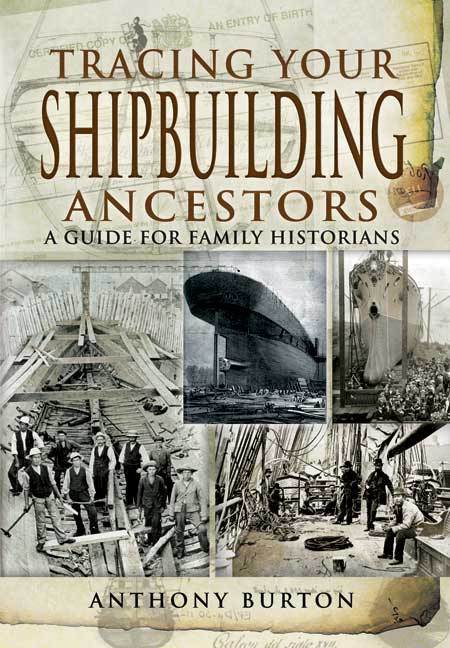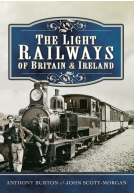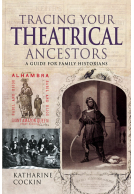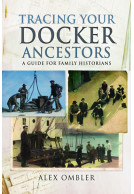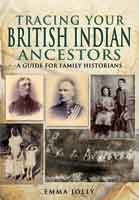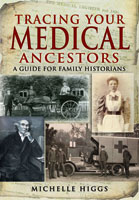Tracing Your Shipbuilding Ancestors (eBook)
A Guide For Family Historians
Imprint: Pen & Sword Family History
Series: Tracing Your Ancestors
File Size: 1.5 MB (.epub)
Pages: 144
Illustrations: 40
ISBN: 9781844686889
Published: 2nd March 2010
| Other formats available | Price |
|---|---|
| Tracing Your Shipbuilding Ancestors Paperback Add to Basket | £12.99 |
Anthony Burton's concise and informative guide to British shipbuilding will be absorbing reading for anyone who wants to learn about its history or find out about the life of a shipbuilder and his family. In a clear and accessible way he traces its development from the medieval period to its peak in the nineteenth and early twentieth centuries and on into the present day.
He describes how, at the height of its powers, it was of immense importance. It employed tens of thousands of workers, so a large proportion of the population today has some connection with it. And this great industry was also so widespread that wherever you move around the coast of Britain, you will never be far from a former shipbuilding centre.
This practical handbook will be an invaluable guide for family and local historians and for readers with a more general interest in shipbuilding. It introduces the variety of national and local records that are available for genealogical research and considers the many other resources that can yield fascinating information about the industry and those who worked in it.
Anthony Burton left a career in publishing in the 1960s to become a full-time writer, specializing in industrial and transport history. Among his many books are three important studies of British ships and shipbuilding: The Past Afloat, which accompanied a BBC TV series that he wrote and presented, The Rise and Fall of British Shipbuilding and The Daily Telegraph Guide to Britain’s Maritime Past. Recently he has worked as the historic adviser on a TV series focusing on various aspects of industrial history, including shipbuilding, for the Discovery Channel.
Referenced in resources part of Alex Ombler article ‘Shipbuilders’, as featured by
WDYTYA? Magazine, June 2020
Author article on life on the canals as featured in
Family Tree, October 2017
Author article as seen in (part of the Ship Building Ancestors feature)
Family Tree, April 2017
The book is well illustrated, easy to read, covers a lot of ground, and gives good guidance on where to search for information on your British Isles shipbuilding ancestors
Paul Milner, FGS Forum, Spring 2011
For many individuals conducting personal genealogical research or retracing their ancestral history, the task can seem daunting and tiresome, with no assurance that valuable information will come from the countless hours of research. At the same time, studying the history of British shipbuilding can prove to be as equally daunting and time consuming. In Tracing your Shipbuilding Ancestors: A Guide for Family Historians, Anthony Burton provides historians with the necessary research methods and tools to successfully track their ancestors. Not only about genealogy, Burton's book offers an informative and intriguing depiction of British shipbuilding and the various labourers in the trades it involved.
The Northern Mariner
Burton's attempt to trace his own shipbuilding ancestors led him to encourage others to do the same. He has created a concise and interesting history of British shipbuilding from medieval mariners to modern shipbuilders designed to help readers trace their ancestors through each period of time. Burton focuses on the themes of shipbuilding and retracing family ancestry, while discussing the outside factors that affected the maritime industry, the sources available to family historians, and the ways in which historians should use the sources at their disposal.
Well written, covering the advance in British shipbuilding and changes in construction techniques.
Cornwall Family history Society, June 2011, Hayden G Thomas
Covers building from wooden ships to the gradual change to iron ships.
Also contains a section on modern shipbuilding and the decline in British shipyards.
Guides to where staff and union membership records are available and how to find them are included in the chapters, including dockyard archives.
There are also notations of where preserved ships of various types are located.
This latest guide from Pen and Sword provides a wonderful overview of the British shipbuilding industry, and how to research ancestors who worked within it.
Discover my Past, England and Scotland
The author starts with a gentle overview of how to get started with family history research, so gentle you almost end up screaming "Tell me something I don't know" - and then he does! What follows is a fascinating account of the industry's evolution, from the early days of the Saxons and Viking clinker- built construction to the advent of the industrial revolution and the use of iron. Each chapter predominantly deals with key developments of the industry before an appraisal of relevant records for that period, providing a nice balance of historical and research information as you work your way through the book.
A useful bibliography ends the book detailing published histories of some of the biggest shipyards across the United Kingdom. Highly recommended.
As a maritime nation, Britain has a long and proud history of shipbuilding. What was once a thriving industry has been in decline since the post-war period. At one time Britain stood unopposed as the ruler of the world's oceans, partly due to the country's powerful navy and dominant shipbuilding industry.
Your Family History
The roots of this industry can be traced back thousands of years, from the early Saxon wooden ships to the luxury cruise liners and warships of the early 20th century.
Many of the world's great ships were produced in the shipyards of Great Britain, none more iconic than Isambard Kingdom Brunel's SS Great Britain. This was arguably the most important ship built in the 19th century. Thanks to innovations such as its iron hull and screw propeller, the SS Great Britain heralded a change the way future ships were designed and built.
At the peak of its powers the shipbuilding industry employed tens of thousands of workers, keeping Britain a powerful global force and driving growth of the Empire. Such was the vastness of this industry it is likely that many of us have ancestors that worked in or were in some way connected to it.
In this book, Anthony Burton, provides the tools necessary for getting started in looking into your past and shows how you can connect your ancestor to one of the many shipyards or ships that were situated up and down the country. The reader is introduced to a variety of resources that can be used for genealogical research such as national and local records, amongst many others that can yield fascinating information about the industry and those that worked in it.
This well-written and easily accessible book can not only be used as a tool for research but also offers a detailed insight into the development of the shipbuilding industry, leaving the reader with an increased knowledge of and appreciation for what was once Britain's greatest industry.
Anyone with shipbuilding ancestors wanting to find out more about the history of shipyards, or the life of a shipbuilder and his family, will find this book a great help. Shipbuilding's development is traced from the medieval period, through to its peak in the 19th and 20th century,
Practical Family History
and on to the present day. There's an introductory chapter on beginning your research, including published sources, and museum and shipbuilding archives. At its height, the industry employed thousands of workers, so inevitably many of us will have some connection with shipbuilding, consequently this book will be a useful resource to add to your bookshelf.
This excellent series for tracing ancestors is informative and absorbing reading for those wanting to learn more about the history of shipbuilding or to find out about the life of shipbuilders and their families across the generations. The author traces the development of the industry from medieval times to the present in a clear and concise way. This handbook will be an invaluable guide for family and local historians and for any reader with a more general interest in shipbuilding.
Margaret Pearce, Sussex Family Historian
About Anthony Burton
Anthony Burton has been writing about the history of transport and technology for fifty years. His books include Remains of a Revolution, The Railway Builders, The Locomotive Pioneers and biographies of Thomas Telford, George and Robert Stephenson and a biography of Marc and Isambard Brunel (due to be published in 2022). He has worked extensively in TV and most recently as historical adviser to the Discovery Channel series Industrial Revelations, More Industrial Revelations and On the Rails.







